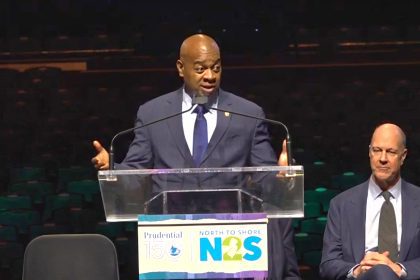The aftermath of the 2024 presidential election has sparked intense discussions among Democratic Party leaders regarding the campaign strategies that led to Vice President Kamala Harris’ defeat against President-elect Donald Trump. Despite the party’s efforts, many are questioning the effectiveness of their approach and the implications for future elections.
Understanding the defeat
On the Nov. 26 episode of Pod Save America, prominent members of Harris’ campaign reflected on their loss, revealing a concerning lack of clarity about the reasons behind it. David Plouffe, a senior advisor for the Harris/Walz ticket, emphasized the need for Democrats to focus on winning over moderate voters. However, this perspective raises questions about the party’s ability to energize its core supporters, particularly within the Black community, which has historically been a crucial voting bloc.
The disconnect with Black voters
Despite receiving warnings from Black-led organizations about the necessity of engaging Black voters more effectively, the campaign failed to adapt its strategy. This oversight is particularly troubling given the Democratic Party’s declining support among Black voters in recent elections. The party’s fixation on appealing to moderates seems misplaced when they struggle to mobilize their base.
Criticism from within
The criticism of the Democratic Party’s approach has not been limited to external observers. Figures like Senator Bernie Sanders have voiced concerns that the party is neglecting working-class voters — a demographic that includes a significant number of Black individuals. This narrative suggests a broader issue within the party regarding its understanding of race and class dynamics in electoral politics.
Identity politics and its impact
Congressman Seth Moulton has also weighed in, attributing the party’s struggles to its embrace of identity politics. He pointed to the controversy surrounding transgender student-athletes as an example of how Democrats have alienated certain voter segments. However, this critique overlooks the fact that identity politics can also resonate positively with many voters, as evidenced by Trump’s successful use of similar strategies.
Misguided focus on moderates
Many Democratic leaders continue to prioritize the so-called moderate voter, often at the expense of addressing the needs and concerns of their traditional base. This fixation has been criticized as a significant factor contributing to Trump’s resurgence. The party’s failure to respond effectively to the Trump campaign’s aggressive tactics — including transphobic ads — further illustrates the need for a more robust strategy that resonates with all voters, particularly those from marginalized communities.
Harris’ campaign challenges
Harris faced unique challenges during her campaign, including inheriting a struggling campaign staff and having limited time to turn things around. The lack of a cohesive strategy and the influence of overpaid consultants hindered her ability to connect with voters effectively. Acknowledging these challenges is crucial for understanding the broader electoral landscape.
Harris’ Future
Despite the setbacks, Harris remains determined to stay in the political arena. Reports indicate that she is considering a gubernatorial run in 2026 or another presidential bid in 2028. Her resilience is commendable, but it is essential for her to surround herself with knowledgeable professionals who understand the electorate’s needs and aspirations.
The final political autopsy report
The Democratic Party must reflect on its strategies and priorities moving forward. Engaging with the concerns of Black voters and other marginalized groups is not just a moral imperative but a political necessity. As the party navigates the complexities of modern electoral politics, it must recognize that true success lies in energizing its base rather than chasing elusive moderate voters.
In the words of Michael Arceneaux, a New York Times bestselling author, the future of the Democratic Party depends on its ability to adapt and respond to the needs of all its constituents — particularly those who have historically supported it.















